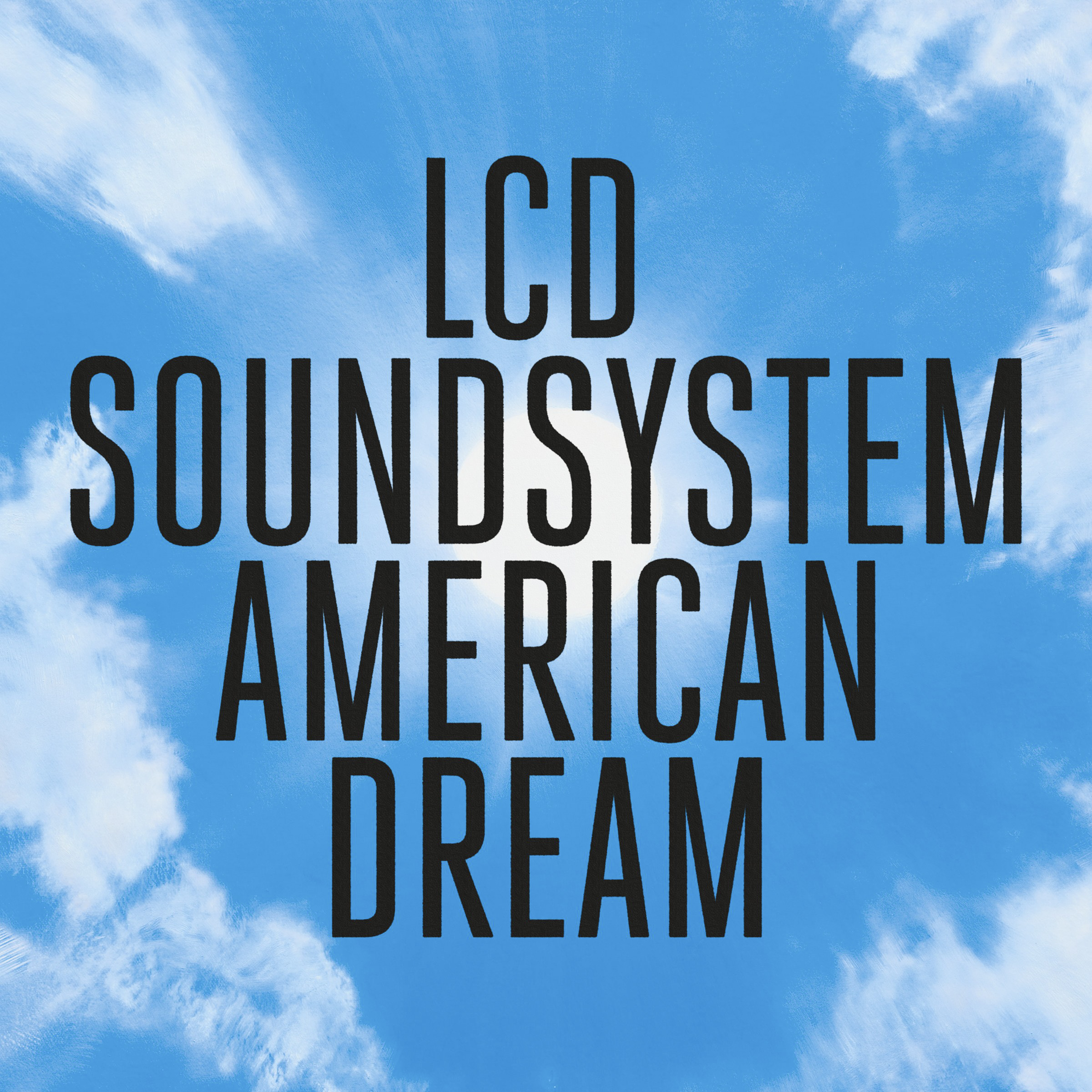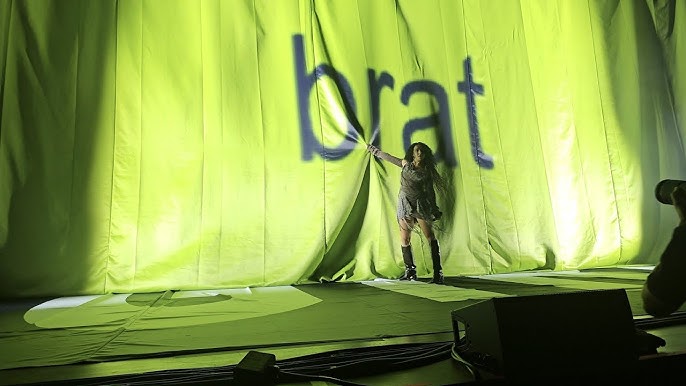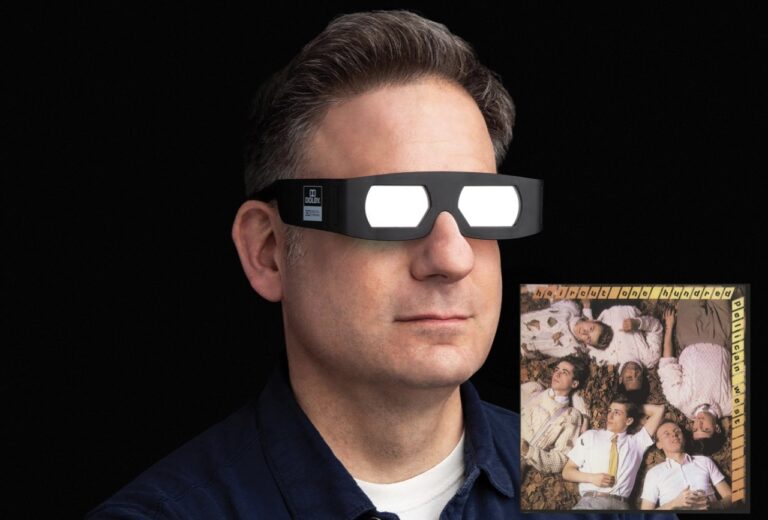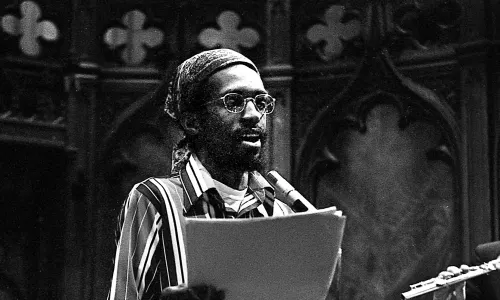LCD Soundsystem’s American Dream: James Murphy Finally Loses his Edge

James Murphy is a master manipulator: he knows how to elicit any reaction from his listeners through his musical choices. He knows when his songs will make us want to dance, cry, laugh, belt the chorus, and freak out, which is partially why LCD Soundsystem’s live shows are so damn good. Believe me. I’ve seen them.
Perhaps this talent comes from Murphy’s years as a DJ, mastering the art of playing the perfect song at the perfect time. Or perhaps it comes from his well-documented obsessiveness in the studio—he plays most of the parts himself and does much of the engineering and producing as well. Wherever that talent of working the crowd and the listener came from, it has, for the most part, disappeared on LCD Soundsystem’s comeback album American Dream. Their latest album was released this summer, six years after the band announced what appeared to be a permanent breakup at a sold-out show at Madison Square Garden.
On the surface, the songs sound much like LCD’s past work. The rollout of singles had me thinking American Dream would be far too similar to the old albums. “Call the Police” sounds like “All My Friends,” a Berlin-era Bowie inspired rocker that builds on the same chord progression for seven odd minutes and reaches anthem-potential heights by the end. “American Dream” sounds like “Someone Great,” an introspective, melancholic ballad that asks for a break from the dancing to ponder hard questions for a little over six minutes. “Tonite” sounds like “Losing My Edge,” a neurotic, mumbled Murphy rant set to an infectious dance beat. Some of the non-single tracks also sound like old LCD songs. The call and response in “Emotional Haircut” and its ironic portrayal of nightlife characters evokes “Drunk Girls.” “Black Screen” serves as another “Someone Great”-style somber ballad.
It’s not the sound of the songs that’s changed from LCD’s past work, but the reactions the songs elicit—a more subtle difference. As a rather personal example, the morning after American Dream’s release, a friend wrote to me, “Doesn’t seem like there r [sic] any bangers or ballads.” “So far I really like oh baby,” I replied meekly. My friend’s evaluation, although premature after only one listen, highlighted the album’s lack of immediacy in comparison to the past three LCD records. There are fewer, if any, get-up-and-dance energizers like “Daft Punk Is Playing In My House,” or “North American Scum,” or irresistible hooks from songs like “I Can Change,” or “Sound of Silver.” American Dream is more reserved, darker, and perhaps more subtle than any other LCD album, but at the cost of losing that exciting, danceable, hyperactivity we’ve grown accustomed to.
I tried putting on American Dream the other night for my friends when we were gearing up to go out. When “Other Voices” came on, its disco beat and syncopated bass bouncing off the walls, my friend started tapping her foot. “This is good!” she said and started dancing. I was surprised. Maybe it’s a dance record after all. But by the time the distorted Robert Fripp-style guitar solo gave way to Murphy repeating the line, “You’re just a baby now” over buzzing synths, my friend was sitting down.
“This is making my ears bleed,” she said. “He’s just a bitter middle-aged man yelling at 20-year-old girls in the club because he got dumped by one of them.”
That’s probably not what Murphy was going for. So much for his mastery of the crowd and listener. When he repeats the line “You don’t know what you really want,” fifteen times at the end of “Losing My Edge,” the listener is on his side. The “you” in that line refers to all the annoying, out of touch, pretentious people that the listener and Murphy would both like to ridicule. Murphy has won us over, convinced us that he, although flawed and insecure, knows what he’s talking about, and we should listen. It’s not our fault, as it is on “Other Voices,” where we, the listener, are now the enemy. In the past, Murphy would not have let such a misstep, such an accusatory and alienating tone, slip into his songs. Obviously, any good work of art should challenge its audience, but on “Other Voices,” we’re not challenged, we’re attacked.
One misstep shouldn’t ruin an album though, and it doesn’t. There are plenty of wonderful moments and insightful lyrics here, such as “life is finite/ But shit it feels like forever” on “Tonite,” and “Oh, the revolution was here/ That would set you free from those bourgeoisie” on “American Dream.” Plenty more great lines emerge from continued listening, which is why this album can only get better with the passage of time. It’s rich and dense, with many verses to mine for meaning. Over time, the subtleties and layers bloom, even if on the first listen the songs sound duller than past songs by LCD. Maybe this album won’t be the soundtrack to my nightlife for the semester, as I had hoped it would be before its release, but I’ll sit with it, listen, be patient, accept its flaws, and accept Murphy’s flaws. Maybe Murphy isn’t the master manipulator he used to be, and if so, it’s because he’s exploring new territory, seeing what works and what doesn’t. We’ll give him a chance, another listen.








Leave a Reply